You are currently browsing the category archive for the ‘Racism’ category.
We’re almost four years into the 20s and the sooner we bring back the concept of decades the better. Decades give people, especially young people, a temporal identity and a grounding in history. Decades emphasize the importance of now, but also connect us to the past in a way that doesn’t alienate us from our elders or youths in the way the concept of “generations” does automatically. Decades are a key element of narrative storytelling, encourage critical thinking through comparing/contrasting eras, and make it easier to discuss the future. In sum, decades benefit mental health, social inclusion and connection, movement building, and resistance to the aimless void of late capitalism. Our ability to exercise historical agency and preserve historical memory may depend on us reviving this concept.
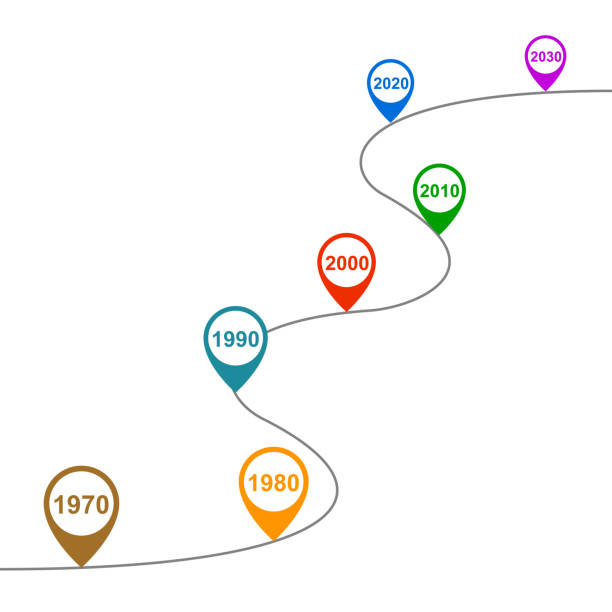
If you’re 35 or older, you remember the 60s, 70s, 80s, and 90s as regular talking points. Both in the historical sense of “what was the spirit of the 60s?” and in the future-focused sense of “this will be THE trend of the 90s.” The concept of decades permeated regular conversation, tying people together and rooting them in a temporal home, whether you were talking about music, sports, film, fashion, politics, games, or literally anything. It made it natural and popular to compare eras of things, which is a basic building block of both historical study as well as critical thinking itself. It also helped people form an identity, in the sense of “I’m a child of the 70s” – one shorthand reference point that contains a vast easily-recalled cultural context filled with people, events, products, art, styles, and social struggles. It was a source of pride to be associated with a decade.
When Y2K hit, the computers were just fine. Better than ever, in fact. But we weren’t, because we suddenly lost a very powerful tool for understanding our social environment. Without the concept of decades, we wandered into an amorphous fog without beginning or end, where we became easy-pickings for a consumer capitalism that thrives by developing isolated, disoriented worker-spectators. When ignorant of our past and uninterested in our future, we rarely make trouble for the ruling class.
At first, some people resisted the change. They coined names for the decade-to-be, but none caught on. They sounded forced, so they were relegated to the realm of jokes (Try to have a serious conversation about “the noughties”). Nothing stepped in to bridge the chasm.
It wasn’t a huge problem at first, because the 90s were such a recent frame of reference, so we could keep the concept of decades alive by just filing the present under “post-90s” or “this decade.” All the conversations we were accustomed to, where we compared trends in pants, or hair, or anarchist politics, kept rolling for a while, they just had this weird stand-in where you’d have to compare previous decades to the vague concept of “now.” As in, “you guys had VCRs in the 80s, but now we have the far-superior technology of DVD players, which will remain popular forever.”
Ten years passed. A new decade was scheduled to be starting, but no one took notice. The concept of decades wasn’t revived. Instead, it faded into oblivion. Maybe we were too buried under the infinite scroll of social media, our heads down, absorbed by our smartphones, or too obsessed by the latest streaming content, that we lost the ability to form long-range narratives. Our shared experience of the era itself began to fracture, as our attention scattered into increasingly fragmented niches of the spectacle, which concealed the fact that we were largely all doing the same thing at the same time. Or maybe we were so emotionally beaten down by the seemingly endless “War on Terror” and apocalyptic ecological catastrophe that we simply didn’t have the energy to think of ourselves as historical agents, and therefore couldn’t be bothered with putting a name on the era we were living through, even though “the teens” was an obvious and pleasant choice.
It’s not as if there weren’t massive and historically-important movements for social change happening in that decade. From the Arab Spring to Occupy Wall Street to Black Lives Matter to MeToo to Transgender visibility, millions of people were organizing, shifting social norms, and becoming empowered to radically improve society in ways perhaps more profound than we know. But compared to movements of the 60s, 70s, 80s, or 90s, these new movements are unusually obscured, and perhaps in danger of being overlooked.
Organizers of these world-changing efforts – people like Alicia Garza and Marisa Holmes – should be recognized and remembered for their actions. Even more importantly, our understanding of how that decade’s movements arose, why they were so effective, and also what their shortcomings were, should be the topic of regular conversation so that we may improve upon them in the future. Yet, it’s nearly impossible to have a productive, civil version of such a discussion on social media, and it may be nearly impossible for a social movement in this day and age to outlast the ephemeral confines of a hashtag.
This is not to suggest that these movements will be forgotten, or to downplay the excellent work of the chroniclers of these efforts, who have produced worthwhile books, documentaries, and other media that actively preserve this historical memory. Instead, I suggest it is unfair to those culture-defining social movements that we can’t immediately recall their powerful messages, images, and actors through a universally-agreed-upon phrase like “the teens” in the same way that “the 60s” immediately conjures such thoughts of the Civil Rights Movement or the anti-Vietnam War movement.
By the way, don’t give me this crap about “generations.” The Civil Rights Movement/Black Freedom Struggle was driven forward by people of all ages, from elders like A. Philip Randolph to middle-aged people like Ella Baker, to children like those who walked out of school to pack the Birmingham jails. As far as I’m aware, the fear-mongering associated with “rebellious youth” has always existed. For sure it existed in the 60s, when the mass media did their best to demonize the anti-authoritarian, hopelessly “feminized” “Baby Boomers”, effectively blaming young people for everything wrong with the world. We’ve come full circle today, blaming those same people, who are now old, for the exact opposite reasons.
“Generations” are a fake conceptual tool used to divide people. Since 2000, as the concept of decades has fallen away, in part it has been superseded by the nefarious concepts of “Millennials” and “Gen. Z.” These are identities which are inherently exclusive, and usually they are invoked for purely negative characterizations. Eventually, “Gen. Z” will get the same scorn that “Boomers” do now, and it will be just as baseless.
In contrast, decades are inherently inclusive. Everyone who was alive in the 90s can reminisce about what that decade was like for them. Even if our experiences were vastly different, we can find common ground through cultural touchstones like The Simpsons or Tupac. That kind of conversation is not just idle nostalgia. It is a collective remembering that allows us to form social bonds with neighbors, co-workers, and fellow activists, to each of whom the 90s is a small building block in their own identity-formation.
If you read comments on Youtube under videos of old music or TV shows (and I’m not recommending you do), you’ll regularly see people lamenting that we no longer live in the [insert decade here]. Some of those commenters are old and feeling nostalgic for the loss of their youth. That’s normal. But some of those commenters are young. They will often mention that they “just turned 16” (or another age of fragile identity-formation). And yet, here they are, wandering the interwebs, watching videos that were produced before they were born and wishing they could time-travel back to the 20th century.
Meanwhile, the 21st century is nearly a quarter complete, and its music and TV shows have been equally valuable, if not more so. But without the decades providing an automatic frame of reference for great artistic works, we struggle to recall exactly when they were released, or how they related to concurrent events in society or technology, or even our own lives. Without decades, people don’t know how to talk to each other about their own time period. And so they don’t. They just slowly forget, as everything is enveloped in a nebulous, meaningless haze.
What stories are children of this century learning about their own time, and where they fit in? What can they be proud of? What can they look forward to?
There’s a bunch of things we could do for a better future for all. Redistributing the wealth of the top 1%. Replacing the private automobile with free public transit. Dismantling the prison-industrial complex in favor of systems of transformative justice and accountability. Planting a billion trees. Those will take a lot of hard work and a long time.
One thing that would take very little effort, would bring us into connection with those around us of all ages, would help us cherish the present and look forward to the future, would empower us to find meaning and feel better, is to reintroduce the concept of decades. We can start now, by acknowledging publicly, and habitually, that we live in the 20s.*
* I mean no disrespect to the decade of the 1920s, a fine decade to study and discuss. But of the decades called “the 20s”, the current decade is far more relevant to everyone living today and for the rest of the 21st century. I don’t know at what point people stopped referring to the 1820s as “the 20s,” but surely it was before 1923.
This essay was first written in the Fall of 2010. Thanks to the prodding emails of readers, I have decided to revisit this section and publish it. [alex]
Why Marxism Has Failed, and Why Zombie-Marxism Cannot Die
Part 3.2 – Marx and Colonialism
by Alex Knight, endofcapitalism.com
[Click here for Part 1 (Intro), Part 2 (What Marx Got Right), and Part 3.1 (Linear March of History)]
“Do not terms such as ‘preindustrial’ and ‘precapitalist’ infest the marxian vernacular whenever analysis of noneuropean – that is, ‘undeveloped,’ ‘backward,’ or ‘primitive’ – societies is at hand? What possible purpose does the qualifier ‘pre’ – as opposed to say, ‘non’ – serve in this connection other than to argue that such societies are in the process of becoming capitalist? And is this not simply another way of stating that we are lagging behind those societies which have already become industrialized? Or, to take another example, to what end do marxists habitually refer to those societies which have ‘failed’ (refused) to enter a productive progression as being ‘ahistorical’ or ‘outside of history’? Is this to suggest that such cultures have no history,[i] or is it to say that they have the wrong kind of history, that only a certain (marxian) sort of history can be ‘real’?” – Ward Churchill, “False Promises: An Indigenist Examination of Marxist Theory and Practice” (Acts of Rebellion 233).
Marx’s linear march of history, as critiqued in the last section, leads him to deeply problematic conclusions about Europe’s relationship to the rest of the world. If capitalist Europe has attained the “highest” stage of social development, then everyone else is expected to follow in its footsteps to achieve liberation. Marx repeatedly characterized Europe as the most “advanced” or “civilized” continent (and within it England as the most advanced nation) as opposed to the “stagnation” of the “Asiatic” mode of production.
As we’ll see, he also held the dubious position that European colonialism was a necessary evil – simultaneously condemning its brutality while praising it as a progressive step in historical development. Such thinking implicitly marginalizes anti-colonial and anti-imperialist struggle as secondary to that of the industrial proletariat. At worst, some Marxists have even followed this logic to condemn anti-colonial struggle as reactionary because it seeks to “roll back the wheel of history.”
This essay is not about labeling Marx a racist; it is a critique of how Eurocentrism impedes the project of self-determination for peoples around the globe. For example, now that Europe’s colonies have given way to home-grown governments in Africa, Asia and Latin America, must these nations “Westernize” in order to “develop” their economies, or is there a road to freedom that doesn’t pass through capitalism? This remains a relevant question from Bolivia to China, and wherever self-identified Marxist regimes confront the twin problems of social inequality and ecological devastation.
European Superiority?
The first time I ever questioned the correctness of Marx’s views was through reading Kwame Turé’s (Stokely Carmichael’s) autobiography, Ready for Revolution. Turé, an Afro-Trinidadian immigrant to New York, was a major figure in the Student Nonviolent Coordinating Committee (SNCC), a youth organization at the forefront of the U.S. civil rights movement. As Stokely Carmichael, he made headlines in 1966 when he first raised the call of “Black Power!” In his later years he left the United States for West Africa, living at the side of African liberationist leaders Kwame Nkrumah and Sekou Touré.
In Ready for Revolution, Turé reflects on a rocky relationship with Marxism which connects with my own. As a youth in the Bronx he got involved with young (white) Marxist organizers, and being very smart he quickly grasped the Marxist theories of historical materialism, dialectics, socialism and communism.
“For the first time I encountered a systematic radical analysis, a critical context and vocabulary that made sense of history. It explained the inequities and injustice I’d long been conscious of in the society around me and prescribed (even predicted) revolutionary solutions. That was wondrously exciting intellectually” (92).[ii]
Yet, he recalls that as a black man there was something that didn’t sit right about Marx’s focus on Europe as the model for progress. “The words Eurocentric and hegemonistic were not then in my vocabulary or consciousness. I never overtly or consciously thought about the curious fact that all these revolutionary thinkers were European or that all their theoretical models were fashioned out of European historical experience. I accepted them as ‘universal.’ At first” (94).
After witnessing the “Harlem stepladder orators” speak about Pan-Africanism, and organizing with other black radicals at Howard University for civil rights, Stokely realized that Marx hadn’t been speaking to him as a black man. Marx was speaking to Europe. “I could sense that something was missing from this seamless, ‘universal’ system. Somehow it did not seem to take into serious account the rhythms and historical presence of my people” (104).
In the vast majority of his writings, Marx did not take life outside of Europe into account. The few times he did write about non-European societies are seldom studied today, but as we’ll see, are deeply problematic. Read the rest of this entry »
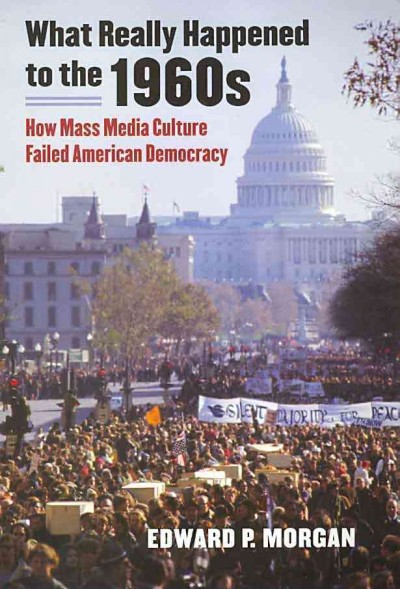 What Really Happened to the 1960s: How Mass Media Culture Failed American Democracy
What Really Happened to the 1960s: How Mass Media Culture Failed American Democracy
Edward P. Morgan
2010, University of Kansas Press
Who controls the past, controls the future. Who controls the present, controls the past.
– George Orwell, 1984
As a young and politically naïve college student, I was very fortunate to have the opportunity to take several of Ted Morgan’s classes. His “Movements of the Sixties” course was hugely influential for me, primarily because exposure to the upheavals of that era taught me that the project of transforming our world towards a more democratic, just, and ecologically balanced future has deep roots. Standing confidently atop those long, sturdy roots transmits the possibility and hope that we can indeed change the world, because we already have. Indeed, the black freedom, anti-Vietnam War, women’s liberation, gay and lesbian liberation, welfare rights and other movements of the 60s era so successfully challenged the dominant capitalist institutions of the U.S. that those institutions have been scrambling for the last forty years to systematically minimize the possibility of future freedom struggles.
In this book, Ted Morgan documents a key component of that reaction: the two-pronged mass media campaign to denigrate and obscure the democratic promise that the movements of the sixties still hold, while at the same time co-opting the symbols and imagery of the sixties to make Corporate America “cool” and thereby sell more products. This media reaction has gone hand-in-hand with material forces, such as student debt, coercing the population into inactivity and obedience. In Morgan’s words, the result is a “depoliticized society,” with a “diminished ability to make history” (pg. 7). This book therefore becomes a weapon against rootlessness and despair, which I especially urge young people to read.
The Promise of Democracy
The 1960s are typically remembered as a time of turbulence and change. We all know the iconic images: assassinations, war, protests, urban riots, men on the moon, long hair, drugs, sex, and rock ‘n’ roll. Yet, it’s a decade that Americans are still trying to make sense of, justifying an endless stream of retrospectives like CNN’s latest 10-part weekly series “The Sixties.” Ted Morgan’s necessary book What Really Happened to the 1960s provides answers you won’t find on primetime TV. In his writing, the underlying story of that decade was a clash between capitalism and democracy, one in which perhaps millions of Americans participated in social movements and challenged the country to become more just and more democratic (8). In some ways they succeeded and in others they failed. But as the book’s subtitle, How Mass Media Culture Failed American Democracy suggests, the true history of that struggle has been consistently distorted and hidden from view. What the media still cannot comprehend, or perhaps would seemingly most like to forget, is the democratic promise that formed the basis of those sixties social movements.
“[L]argely disappeared from memory [is] the surge in democratic empowerment in which large numbers of Americans of all ages organized themselves to confront and transform a range of injustices rooted in American institutions” (6, emphasis added).
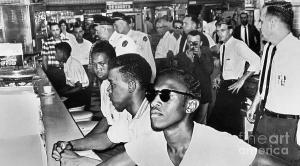
As a practice of democratic empowerment, students initiated the lunch counter sit-ins to challenge legal racial segregation in the South. (1961)
Morgan goes on to define the phrase “democratic empowerment.”
“[D]emocratic empowerment means one’s unfolding ‘freedom to,’ a lifelong discovery of one’s authentic self, the discovery of which progressively frees one from manipulation by others and potentially by the disabling scripts of the unconscious” (51).
In other words, the sixties’ social movements, at their best, were not just about stopping racism or war on a systemic scale, but also about the self-realization of the millions of individuals involved on a personal level. Forty years later, I experienced the same rush of democratic empowerment when I attended my first organizing meeting and realized for the first time that in working with others I had the power to impact the world around me for the better. The meaningfulness and self-confidence that comes from a politically active and engaged life contrasts dramatically from the dominant modes of apathy and self-loathing inoculated into us by capitalist society and its mass media appendages. The experience of activism allows people to see themselves differently and to grow into their full potential, gaining courage as they take on greater and greater challenges – from speaking at a meeting, to holding a picket sign, to risking arrest in direct action.
As civil rights organizer Jim Lawson is quoted, “ordinary people who acted on conscience and took terrible risks were no longer ordinary people. They were by their very actions transformed” (51). Read the rest of this entry »
Silvia Federici is one of the most important political theorists alive today. Her landmark book Caliban and the Witch demonstrated the inextricable link between anti-capitalism and radical feminist politics by digging deep into the actual history of capital’s centuries-long attack on women and the body.
In this essay, originally written in 2008, she follows up on that revelation by laying out her feminist anti-capitalist vision, and how it extends beyond traditional Marxism. This piece is comprehensive – long but far-reaching. At times seeing the truth requires seeing in the dark – acknowledging the true horrors of the world as it currently is manifest.
This essay was updated and published in Silvia’s new anthology Revolution at Point Zero, and I have made a few small additional edits. Enjoy! [alex]
The Reproduction of Labor Power in the Global Economy and the Unfinished Feminist Revolution (2011 edition)
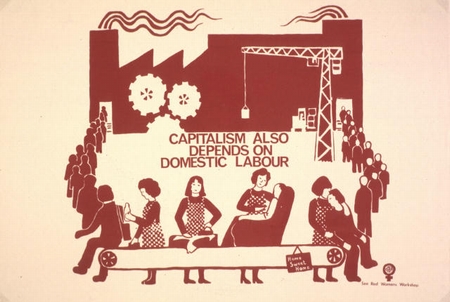 “Women’s work and women’s labor are buried deeply in the heart of the capitalist social and economic structure.” – David Staples, No Place Like Home (2006)
“Women’s work and women’s labor are buried deeply in the heart of the capitalist social and economic structure.” – David Staples, No Place Like Home (2006)
“It is clear that capitalism has led to the super-exploitation of women. This would not offer much consolation if it had only meant heightened misery and oppression, but fortunately it has also provoked resistance. And capitalism has become aware that if it completely ignores or suppresses this resistance it might become more and more radical, eventually turning into a movement for self-reliance and perhaps even the nucleus of a new social order.” – Robert Biel, The New Imperialism (2000)
“The emerging liberative agent in the Third World is the unwaged force of women who are not yet disconnected from the life economy by their work. They serve life not commodity production. They are the hidden underpinning of the world economy and the wage equivalent of their life-serving work is estimated at $16 trillion.” – John McMurtry, The Cancer State of Capitalism (1999)
“The pestle has snapped because of so much pounding. Tomorrow I will go home. Until tomorrow Until tomorrow… Because of so much pounding, tomorrow I will go home.” – Hausa women’s song from Nigeria
INTRODUCTION
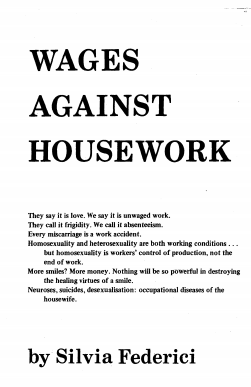 This essay is a political reading of the restructuring of the (re)production of labor-power in the global economy, but it is also a feminist critique of Marx that, in different ways, has been developing since the 1970s. This critique was first articulated by activists in the Campaign for Wages For Housework, especially Mariarosa Dalla Costa, Selma James, Leopoldina Fortunati, among others, and later by Ariel Salleh in Australia and the feminists of the Bielefeld school, Maria Mies, Claudia Von Werlhof, Veronica Benholdt-Thomsen.
This essay is a political reading of the restructuring of the (re)production of labor-power in the global economy, but it is also a feminist critique of Marx that, in different ways, has been developing since the 1970s. This critique was first articulated by activists in the Campaign for Wages For Housework, especially Mariarosa Dalla Costa, Selma James, Leopoldina Fortunati, among others, and later by Ariel Salleh in Australia and the feminists of the Bielefeld school, Maria Mies, Claudia Von Werlhof, Veronica Benholdt-Thomsen.
At the center of this critique is the argument that Marx’s analysis of capitalism has been hampered by his inability to conceive of value-producing work other than in the form of commodity production and his consequent blindness to the significance of women’s unpaid reproductive work in the process of capitalist accumulation. Ignoring this work has limited Marx’s understanding of the true extent of the capitalist exploitation of labor and the function of the wage in the creation of divisions within the working class, starting with the relation between women and men.
Had Marx recognized that capitalism must rely on both an immense amount of unpaid domestic labor for the reproduction of the workforce, and the devaluation of these reproductive activities in order to cut the cost of labor power, he may have been less inclined to consider capitalist development as inevitable and progressive.
As for us, a century and a half after the publication of Capital, we must challenge the assumption of the necessity and progressivity of capitalism for at least three reasons.
 I recently finished this fascinating book by C.L.R. James, detailing the Haitian Revolution of 1791-1803. This was the first (and only?) time in history that an entire colony of African slaves revolted against their masters and succeeded in establishing independence. The magnitude of such a feat, considering all the European backlash and repression, from no less than Napoleon, is shocking to this day.
I recently finished this fascinating book by C.L.R. James, detailing the Haitian Revolution of 1791-1803. This was the first (and only?) time in history that an entire colony of African slaves revolted against their masters and succeeded in establishing independence. The magnitude of such a feat, considering all the European backlash and repression, from no less than Napoleon, is shocking to this day.
C.L.R. James is famous for being one of the most outspoken anti-colonial Marxist thinkers of the 20th Century. His political career started in his native Trinidad, took him through Trotskyism to the Johnson-Forest Tendency, which defined the Soviet Union as state capitalist. After being deported from the US, he spent his final years living in London and married to Selma James, the influential Marxist feminist and founder of the Wages for Housework campaign.
The merits of this book are obvious, it is a blow-by-blow account of how the slaves of Saint-Domingue became the free citizens of Haiti. For its profound social history, it has become required reading for post-colonial theorists, pan-Africanists and anti-capitalists of all stripes. The book is made more relevant by the ongoing injustices against the Haitian people by the US government and international NGOs, which have kept Haiti in a state of poverty and dependence. It is important to remind ourselves that the Haitians are proud people with a history of self-empowerment.
The flaws of the book are perhaps more interesting. James wants to paint Toussaint L’Ouverture in the same stripe as Vladimir Lenin, who James sees as actually a heroic revolutionary leader. From this error stem all the peculiar sections of the book where Toussaint’s character become the main focus. Most interestingly, James also criticizes some of Toussaint’s worst moves, correctly charging them as cowardly or counter-revolutionary, yet does not hesitate to explain them away by referring to Toussaint’s “genius.”
For me the bottom line is that humans instinctively desire freedom. We don’t need any authorities to create it for us, we either all create it together or we lack it. Generals like Toussaint tend to want to appeal to authority, whether Napoleon or the bourgeois Jacobins in Paris. It is a simple fact that people in power are more concerned about what other people with power think, rather than what the people think. Here lies Toussaint’s mistake, and the mistake of Leninism as well.
None of this should discourage the reader from reading and absorbing the social history behind one of the greatest popular democratic victories of all time. The point is to read history critically.
One such critical reader is my friend Daniel, who wrote the excellent review which follows, and which brings the contradictions of James’ work to life. [alex]
The Black Jacobins
C.L.R. James, 1938
Review by Daniel Meltzer.
This book was an excellent read. The strengths included breathtaking battle scenes, rousing rhetoric for freedom and against slavery, brilliant stories of liberation, and page-turning political intrigue. The weaknesses in the book come from self-defeating politics of discipline for the sake of discipline, and the heart-rending compromises that Toussaint L’Overture makes with people who see him and the republic he created as nothing more than slaves to be punished for their insubordination.

Millions of slaves were stolen from Africa in bondage to work in Haiti. Most would die on the slave ships or in the fields.
The utter brutality and injustice of slave ownership, and the barbaric treatment of slaves is scandalous. You will literally shake your head at the stories of how slaves were treated under the law in Haiti. A particularly unnerving example is the slavemasters filling a slave up with gunpowder and lighting a fuse, exploding the body of the slave, perhaps for punishment, but seemingly just as often because the slavemasters could.
The slaves began creating a series of low-level daily resistance to such a situation that is tragic and fascinating. “The majority of the slaves accomodated themselves to this unceasing brutality by a profound fatalism and a wooden stupidity before their masters. […]Through the shirt of [a slave] a master can feel the potatoes which he denies he has stolen. They are not potatoes, he says, they are stones. He is undressed and the potatoes fall to the ground. “Eh! master. The devil is wicked. Put stones, and look, you find potatoes.” Read the rest of this entry »
[There are a lot of thought-provoking ideas in this article, as we reflect on the Occupy movement, what it was, what it meant, and where we go from here in our movements against zombie-capitalism and for a better world.
I intend to write much more about my reflections on Occupy, don’t worry. – alex]
Originally posted on Bay of Rage (May 16, 2012) (broken link 5/28).
 THE COMMUNE
THE COMMUNE
For those of us in Oakland, “Occupy Wall Street” was always a strange fit. While much of the country sat eerily quiet in the years before the Hot Fall of 2011, a unique rebelliousness that regularly erupted in militant antagonisms with the police was already taking root in the streets of the Bay. From numerous anti-police riots triggered by the execution of Oscar Grant on New Year’s Day 2009, to the wave of anti-austerity student occupations in late 2009 and early 2010, to the native protest encampment at Glen Cove in 2011, to the the sequence of Anonymous BART disruptions in the month before Occupy Wall Street kicked off, our greater metropolitan area re-emerged in recent years as a primary hub of struggle in this country. The intersection at 14th and Broadway in downtown Oakland was, more often than not, “ground zero” for these conflicts.
If we had chosen to follow the specific trajectory prescribed by Adbusters and the Zucotti-based organizers of Occupy Wall Street, we would have staked out our local Occupy camp somewhere in the heart of the capitol of West Coast capital, as a beachhead in the enemy territory of San Francisco’s financial district. Some did this early on, following in the footsteps of the growing list of other encampments scattered across the country like a colorful but confused archipelago of anti-financial indignation. According to this logic, it would make no sense for the epicenter of the movement to emerge in a medium sized, proletarian city on the other side of the bay.
We intentionally chose a different path based on a longer trajectory and rooted in a set of shared experiences that emerged directly from recent struggles. Vague populist slogans about the 99%, savvy use of social networking, shady figures running around in Guy Fawkes masks, none of this played any kind of significant role in bringing us to the forefront of the Occupy movement. In the rebel town of Oakland, we built a camp that was not so much the emergence of a new social movement, but the unprecedented convergence of preexisting local movements and antagonistic tendencies all looking for a fight with capital and the state while learning to take care of each other and our city in the most radical ways possible.
This is what we began to call The Oakland Commune; that dense network of new found affinity and rebelliousness that sliced through seemingly impenetrable social barriers like never before. Our “war machine and our care machine” as one comrade put it. No cops, no politicians, plenty of “autonomous actions”; the Commune materialized for one month in liberated Oscar Grant Plaza at the corner of 14th & Broadway. Here we fed each other, lived together and began to learn how to actually care for one another while launching unmediated assaults on our enemies: local government, the downtown business elite and transnational capital. These attacks culminated with the General Strike of November 2 and subsequent West Coast Port Blockade.
I’ve been meaning to post this for a while! It’s a great short essay / pamphlet on race and racism, written for the Occupy movement. Please read! Race is an issue we ignore at our own peril. [alex]
Whiteness and the 99%
By Joel Olson
Originally published by Bring the Ruckus, 10/20/11. A printable PDF of this piece is available for download here, and a readable PDF is available here.
Occupy Wall Street and the hundreds of occupations it has sparked nationwide are among the most inspiring events in the U.S. in the 21st century. The occupations have brought together people to talk, occupy, and organize in new and exciting ways. The convergence of so many people with so many concerns has naturally created tensions within the occupation movement. One of the most significant tensions has been over race. This is not unusual, given the racial history of the United States. But this tension is particularly dangerous, for unless it is confronted, we cannot build the 99%. The key obstacle to building the 99% is left colorblindness, and the key to overcoming it is to put the struggles of communities of color at the center of this movement. It is the difference between a free world and the continued dominance of the 1%.
Left colorblindess is the enemy
Left colorblindness is the belief that race is a “divisive” issue among the 99%, so we should instead focus on problems that “everyone” shares. According to this argument, the movement is for everyone, and people of color should join it rather than attack it.
Left colorblindness claims to be inclusive, but it is actually just another way to keep whites’ interests at the forefront. It tells people of color to join “our” struggle (who makes up this “our,” anyway?) but warns them not to bring their “special” concerns into it. It enables white people to decide which issues are for the 99% and which ones are “too narrow.” It’s another way for whites to expect and insist on favored treatment, even in a democratic movement.
As long as left colorblindness dominates our movement, there will be no 99%. There will instead be a handful of whites claiming to speak for everyone. When people of color have to enter a movement on white people’s terms rather than their own, that’s not the 99%. That’s white democracy.
The white democracy
Biologically speaking, there’s no such thing as race. As hard as they’ve tried, scientists have never been able to define it. That’s because race is a human creation, not a fact of nature. Like money, it only exists because people accept it as “real.” Races exist because humans invented them.
Why would people invent race? Race was created in America in the late 1600s in order to preserve the land and power of the wealthy. Rich planters in Virginia feared what might happen if indigenous tribes, slaves, and indentured servants united and overthrew them. So, they cut a deal with the poor English colonists. The planters gave the English poor certain rights and privileges denied to all persons of African and Native American descent: the right to never be enslaved, to free speech and assembly, to move about without a pass, to marry without upper-class permission, to change jobs, to acquire property, and to bear arms. In exchange, the English poor agreed to respect the property of the rich, help them seize indigenous lands, and enforce slavery.
This cross-class alliance between the rich and the English poor came to be known as the “white race.” By accepting preferential treatment in an economic system that exploited their labor, too, the white working class tied their wagon to the elite rather than the rest of humanity. This devil’s bargain has undermined freedom and democracy in the U.S. ever since.
 The cross-class alliance that makes up the white race.
The cross-class alliance that makes up the white race.
As this white race expanded to include other European ethnicities, the result was a very curious political system: the white democracy. The white democracy has two contradictory aspects to it. On the one hand, all whites are considered equal (even as the poor are subordinated to the rich and women are subordinated to men). On the other, every white person is considered superior to every person of color. It’s democracy for white folks, but tyranny for everyone else. Read the rest of this entry »



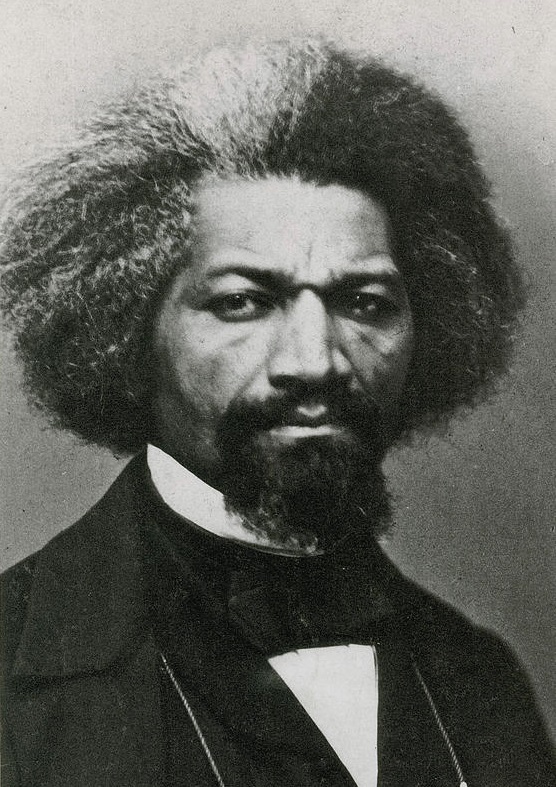




Recent Comments